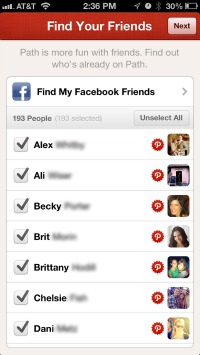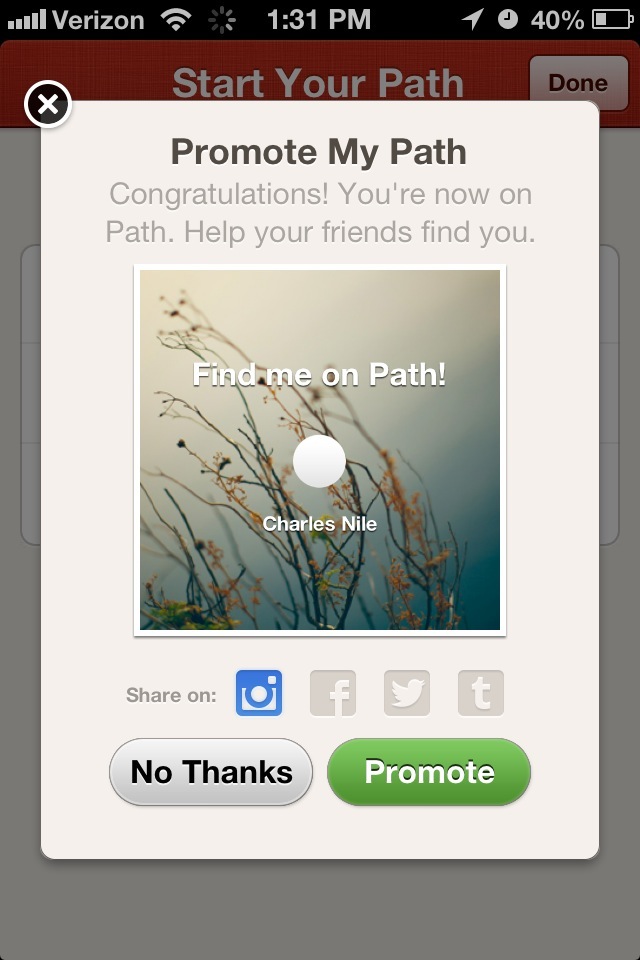The Path controversy just wouldn’t die down. Last week, the private social network has gotten itself in hot water (again) by spamming users’ address book contacts with unwanted robocalls and texts, sometimes even after they uninstalled the software from their devices.
It’s a feature rather than a bug, but Path’s poorly designed sign-up process tricked unsuspecting users – the types who don’t read on-screen prompts carefully – into inadvertently mass-inviting their friends to Path.
And because Path taps extra carrier services, text messages would get turned to landlines into phone calls. None of this seems to aggravate Path CEO Dave Morin, who is a former Facebook employee.
He insisted Monday that Path does not spam users and argued his service never sent mass communication without your consent. “Any allegations to the contrary are false,” Morin said…
Mike Isaac of AllThingsD has the full quote:
Path does not spam users Invites on Path are never sent without a user’s consent – any allegations to the contrary are false.
It’s interesting Morin wouldn’t admit that the sign-up process could have been designed better. At the heart of this brouhaha is a ‘Promote My Path’ feature, part of the sign-up process.
It lets users promote their Path account on Instagram, Facebook, Twitter and Tumblr or scan your address book to invite non-users to sign up for an account with Path.
The problem is, the confusing prompt assumes you want to send an invite to all your friends. Unless you don’t want to spam your friends’ inboxes, you must manually tap Unselect All. Otherwise, Path will aggressively text a signup link to every friend.
Path has since updated its mobile apps with changes allowing users to hide their Path pages from global searches. The sign-up process, however, has remained intact in the refreshed build.
The growth-promoting features that fool many into inadvertently issuing Path invitations weren’t originally incorporated into the service, but users repeatedly asked for these, the CEO claimed.
“We’ve learned that if users want to do something, we just want to get out of their way and let them do it,” he said. “Look at the one-star reviews in the App Store. Making it easier for people to find friends and help them connect on Path is one of our more common requests.”
In the aftermath of the Path spam controversy, Facebook has decided to block Path’s ‘Find Friends’ access for Facebook contacts. The feature contributed to less than five percent of new user connections on Path.
“We certainly hope that Facebook allows users to connect with their friends on Path and with any other partner applications in the future,” Morin told AllThingsD.
Path is limited to just 150 friends and family and is available free on iOS, Android and on the web. The service recently reported ten million registered users and is now adding more than a million users per week.
Path, which turned down a $100 million offer from Google, is now valued at a cool $250 million. Earlier this year, it agreed with the United States Federal Trade Commission to pay a $800,000 fine over collecting kids’ personal information without their parents’ consent.
So, which side of the fence are you on?
Is Morin right or is he trying to sleaze his way out of this one?


